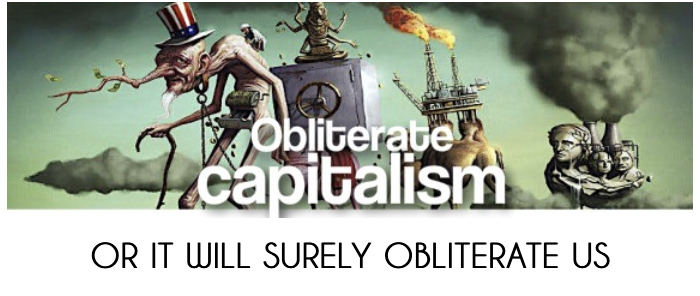Christopher Mott
THE INSTITUTE FOR PEACE AND DIPLOMACY
Key Findings
- The advocates of American primacy within the United States foreign policy establishment historically rely on prevailing ideological trends of the time to justify interventionism abroad. The new ‘woke’ face of American hegemony and projects of empire is designed to project the U.S. as an international moral police rather than a conventional great power—and the result is neo-imperialism with a moral face.
- This is an iterative and systemic process with an internal logic, not one controlled by a global cabal: when the older rationalizations for primacy, hegemony, and interventionism appear antiquated or are no longer persuasive, a new rationale that better reflects the ruling class norms of the era is adopted as a substitute. This is because the new schema is useful for the maintenance of the existing system of power.
- The rise of a ‘woke’ activist-driven, social justice-oriented politics—particularly among the members of academia, media, and the professional managerial class—has provided the latest ideological justification for interventionism, and it has become readily adopted by the U.S. foreign policy establishment. These groups now have an even greater level of symbiotic relationship with state actors.
- Professional selection and advancement under these conditions require elite signaling of loyalty to ‘progressive’ universalism as the trending state-sanctioned ideology, which further fuels the push towards interventionism. This combination of factors encourages a new institutional and elite consensus around trending shibboleths.
- The emerging hegemonic posture and its moral imperialism are at odds with a sober and realistic appraisal of U.S. interests on the world stage, as they create untenable, maximalist, and utopian goals that clash with the concrete realities on which U.S. grand strategy must be based.
- The liberal Atlanticist tendency to push moralism and social engineering globally has immense potential to create backlash in foreign, especially non-Western, societies that will come to identify the West as a whole with niche, late-modern progressive ideals—thus motivating new forms of anti-Westernism.
Executive Summary
The primacist, interventionist wing of the United States foreign policy establishment—’the Blob’—has a long history of using prevailing moralist trends to serve as ideological justifications for expansionist and hawkish policies. From Presidents William McKinley and Woodrow Wilson on through the militant democracy promotion of the George W. Bush administration, this process often mutated to accommodate the de jour proclivities and entrenched biases of the policy-making class. The newest iteration of this process is the adoption of social justice causes and rhetoric as the explicit goals of the United States’ foreign policy. Such use and weaponization of the language of justice to advance the foreign policy objectives of the liberal Atlanticist Blob is particularly evident against regions and countries the West believes actively challenge the Liberal International Order (LIO) status quo or where it seeks to justify military and economic interventions on normative grounds.
Rather than a coordinated conspiracy directed from a central organization or even a conscious desire on the part of the participants however, this process of adopting, incorporating, and cultivating new rationales to sustain what is an idealist and internationalist strategic culture in the United States has become routinized. This entrenchment of systemic moralism in the American national security apparatus has been facilitated, and is at least partly driven, by a highly competitive professional class vying to secure their position in the system by using virtue signaling to demonstrate class solidarity to their higher ranks. This mimetic mechanism incentivizes pushing the envelope and chasing trending causes (normative mimicry)—but always in service of the imperial needs of the state where expansionism and primacy are viewed as the triumph of a universalized American conception of virtue over those forces which are viewed as being on ‘the wrong side of history’. Under such moralistic conditions, prudence, moderation, and narrower conceptions of interest—provisos of realism—could be effectively vilified as enabling oppression and injustice.
The current Wokeist incarnation of American globalist evangelism seeks not only to change the governments of other nations, but engineer their very cultures according to the Western progressive [sic] model. Its universalist framing of human values could be readily applied to violate or undermine the sovereignty of alternate political or cultural systems and justify those interventions for the domestic Western audiences in the name of ‘moral responsibility’.
This white paper seeks to elucidate the often hidden processes and mechanisms that have led to the consolidation of this “woke imperium” of moralistic cosmopolitanism: its historical roots, present-day trends, and possible future evolution. It is also intended as a guide for advocates of realism and restraint: to help realists understand the nature of the resistance they are likely to encounter from certain sectors of the foreign policy establishment and their sympathizers as they try to realign U.S. foreign policy goals with more limited and concrete national interests.
Print this article

Unfortunately, most people take this site for granted.
DONATIONS HAVE ALMOST DRIED UP...
PLEASE send what you can today!
JUST USE THE BUTTON BELOW

[premium_newsticker id=”211406″]
![]() This work is licensed under a Creative Commons Attribution-NonCommercial 4.0 International License
This work is licensed under a Creative Commons Attribution-NonCommercial 4.0 International License
ALL CAPTIONS AND PULL QUOTES BY THE EDITORS NOT THE AUTHORS






